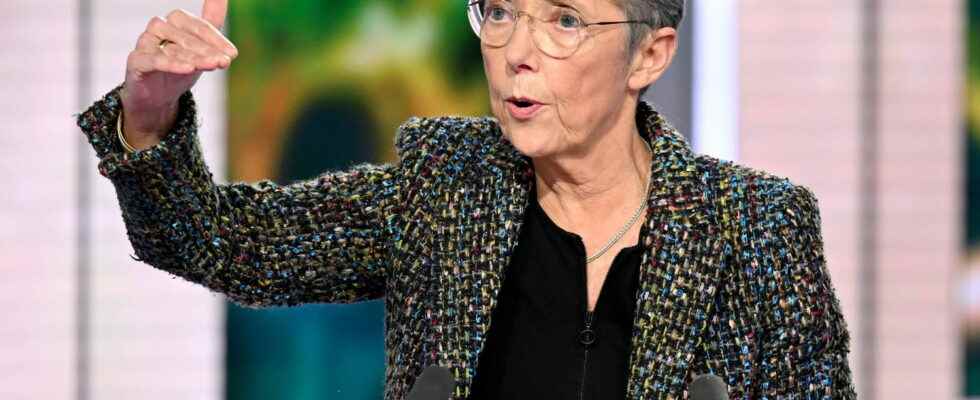RETREAT. Elisabeth Borne unveiled the pension reform according to the government’s project on Tuesday, January 10. Who is affected by the reform, what will be the new legal retirement age, what are the exceptions related to hardship or long careers? Here are 5 key points of this reform.
[Mis à jour le 11 janvier 2023 à 17h24] Prime Minister Elisabeth Borne unveiled the government’s pension reform project on Tuesday, January 10, 2023. A key point in Emmanuel Macron’s second five-year term, the pension reform includes many differences with the project unveiled in 2019 and abandoned following the Covid-19 epidemic. What came out of this presentation of a project already decried by part of the opposition and by the 8 largest unions in the country? Here are the answers on five key points of the project.
1) The modified legal retirement age, who is concerned?
This was the most anticipated point of the reform project. Now 62 (since the Woerth reform of 2010), the legal retirement age will be gradually raised to 64, at the rate of 3 months per year from the generation born at the end of 1961 The first generation affected by this new legal age of 64 will be that born in 1968. They will have to wait until the age of 64 to benefit from retirement (at full rate or not, depending on the quarters of acquired contributions). Here is the new legal starting age, based on your year of birth:
- Generation born in 1961 : 62 years and 3 months, possible retirement in 2023
- Generation born in 1962 : 62 years and 6 months, possible retirement in 2024
- Generation born in 1963 : 62 years and 9 months, possible retirement in 2025
- Generation born in 1964 : 63 years possible retirement in 2026
- Generation born in 1965 : 63 years and 3 months, possible retirement in 2027
- Generation born in 1966 : 63 years and 6 months, possible retirement in 2028
- Generation born in 1967 : 63 years and 9 months, possible retirement in 2029
- Generation born in 1968 : 64 years old, possible retirement in 2030
2) What is the new contribution period required to benefit from a full pension?
172 quarters is the contribution period that must be recorded to benefit from a full pension from 2027, when the initial project dating from the Touraine reform in 2014 planned to climb to this level only in 2035. The acceleration of this calendar would allow, according to the government, to balance the system without raising the legal age to 65, as initially planned. Here too, the acceleration will be gradual at the rate of 3 more months per year for the generations born between 1961 (2nd part of the year, with dates of birth between September 1 and December 31, 1961) and 1965. The generation born in 1965 will be the first to have to save 43 years of contribution to benefit from a full pension.
3) What are the particularities of the reform in the event of a long career?
To benefit from the “long career” system, if the reform presented is successful, you will need to have validated at least 5 quarters of contribution before your 20th birthday, four if you were born at the end of the year. In this case, it will be possible to retire earlier, without reaching the legal age barrier of 64 years.
- Possible retirement at age 58 : if you started working at 14 years old,
- Possible retirement at age 59 : if you started working at 15 years old,
- Retirement possible at age 60 : if you started working at 16 years old,
- Possible retirement at age 61 : if you started working at 17 years,
- Possible retirement at age 62 : if you started working between 18 and 20 years old.
4) What are the hardship criteria used?
The system based on the professional prevention account, the C2P, will be extended to new employees. The government has given the figure of 60,000 more new people affected per year. The C2P allows you to accumulate points to retire earlier, points awarded according to six hardship criteria. Here they are :
- night work
- work in alternating successive teams,
- repetitive work,
- activities in a hyperbaric environment (underwater, nuclear reactor containment)
- extreme temperatures
- noise
The carrying of heavy loads, mechanical vibrations or even painful postures are not part of it according to the government project.
5) What will be the minimum amount of retirement pensions?
It was also one of the expected points since it was among candidate Macron’s campaign promises in 2022. The amount of the minimum retirement pension will be increased for new retirees. It will reach 1200 euros per month, an amount equivalent to 85% of the minimum wage. The minimum pension will no longer be indexed to inflation as it is today, but to the minimum wage. This increase will be valid for people retiring from September 1, 2023, if the pension reform comes into force by then. For current retirees, the government has announced a possible upgrade depending on new discussions with the opposition and trade unions.
